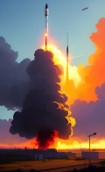(Thread IKs:
fatherboxx)
|
Ripperljohn posted:Doesnít the US profit immensely from itís weak partners in NATO? Itís more like the opposite, we buy more weapons and fund more military research project from Europe than they buy from us because weíre the only thing stopping Europeís MIC from collapsing.
|
|
|
|

|
| # ? Jun 3, 2024 07:22 |
|
Ripperljohn posted:Doesnít the US profit immensely from itís weak partners in NATO? No, because NATO's larger partners have their own MICs, so Europe not carrying their weight ultimately means less profit for the US MIC so whatever orders they would get; additionally a weaker Europe means the US isn't as free to act elsewhere around the world; i.e the number of realpolitikers insisting the US should bury the hatchet with Russia to focus more on China. Instability is ultimately bad for business and Europe being weak means more instability and less flexibility on the international stage.
|
|
|
|
NATO members such as Turkey and Hungary known for not stepping out of line for fear of the US.
|
|
|
|
Ripperljohn posted:Doesnít the US profit immensely from itís weak partners in NATO? Not exactly, sure NATO countries are buying from the US MIC, but they weren't buying nearly as much as Ukraine is now. So both from a greedy economic perspective and an actual strategic perspective Europe was not buying enough for US interests, nor their own apparently. Improving the living standards of NATO/EU citizens is vital to securing democracy, but that doesn't stop dictators from doing their thing. We need to do both, the last 30 years, and WW2 show that appeasement means less than nothing for dissuading dictators. Quite the opposite in fact. Military aggression is either countered immediately and strongly with comparable force, or someone loses their country. It sucks that it works that way, but it has always worked that way.
|
|
|
|
Canada being a spectacular embarrassment is NOT something the United States wants, it screws everything up.
|
|
|
|
Ripperljohn posted:Doesnít the US profit immensely from itís weak partners in NATO? Pretty sure Europe upping their budgets means they buy more, which in fact makes more money for US companies if my math is right
|
|
|
|
Ripperljohn posted:Doesnít the US profit immensely from itís weak partners in NATO? In terms of arms exports by value the EU is neck and neck with the US in spite of spending a lot less, so it's not obvious that this arrangement is profitable. The US could probably keep a significantly smaller armed forces while still exporting about the same amount of equipment. Edgar Allen Ho posted:Pretty sure Europe upping their budgets means they buy more, which in fact makes more money for US companies if my math is right To some extent but probably the lions share will be spent on the EU country's own defense industry.
|
|
|
|
ASAP ROCKY posted this on his Instagram but then deleted shortly afterwards and limited comments on his account.
|
|
|
|
Ripperljohn posted:Doesnít the US profit immensely from itís weak partners in NATO? There are some MIC firms which profit, but as the Europeans are so fond of pointing out in their own cases, it's not like there aren't more socially beneficial areas that money could be going to. Also, "let"? For the past several administrations the US gov't has asked/begged for NATO countries to meet the 2% spending limit, only to get ignored. How would the US compel spending increases in a way which doesn't threaten the unity of the alliance?
|
|
|
|
It really can't be pointed out how lmao the state of most of european NATO was/is https://www.statista.com/statistics/1294391/nato-tank-strength-country/ Turkey, Greece, and such juggernauts as Romania handily outnumbering the countries with enormous homegrown MICs. And "we spent on good things" is a bit of a bunk argument. France has been happy to bomb the poo poo out of the It is pretty lol from this side of the Atlantic. At least countries like Canada, Norway, and Finland, while small, specialize and contribute to the alliance.
|
|
|
|
Edgar Allen Ho posted:It really can't be pointed out how lmao the state of most of european NATO was/is Some of those numbers are likely overestimates, too. Like the 300 tanks for Spain includes Leo 2A4s, and IIRC they had a hard time finding 4 working ones to donate. For comparison Ukraine started with something like 850-900.
|
|
|
|
Edgar Allen Ho posted:It really can't be pointed out how lmao the state of most of european NATO was/is This link is about tanks only. For some reason, after USA, the most tanky countries are the ones closest to Russia. Perhaps there's a reason for this? What about air forces? Or missiles, or... Edgar Allen Ho posted:And "we spent on good things" is a bit of a bunk argument. France has been happy to bomb the poo poo out of the Not sure what you're saying here. France is militarily fairly strong yes. Sweden has had a strong military industry for 400 years or so, yes. Sweden and Germany are... arming horrible people? You mean like every country on earth with a military industry?
|
|
|
|
jaete posted:This link is about tanks only. For some reason, after USA, the most tanky countries are the ones closest to Russia. Perhaps there's a reason for this? Eh, I don't think Turkey and especially not Greece are tanked up because of Russia. But it is about living in a much scarier neighborhood than Western Europe in the same way as the former East Bloc countries. Greece probably is tanked up BECAUSE of Turkey lol.
|
|
|
|
jaete posted:This link is about tanks only. For some reason, after USA, the most tanky countries are the ones closest to Russia. Perhaps there's a reason for this?
|
|
|
|
Grape posted:Eh, I don't think Turkey and especially not Greece are tanked up because of Russia. But it is about living in a much scarier neighborhood than Western Europe in the same way as the former East Bloc countries. Yeah there's a joke that NATO primarily exists to stop Turkey and Greece from going to war.
|
|
|
|
They even have an island they can do proxy crap on without direct conflict. It's perfect.
|
|
|
|
Edgar Allen Ho posted:It is pretty lol from this side of the Atlantic. At least countries like Canada, Norway, and Finland, while small, specialize and contribute to the alliance. The Canadian military is now a hollowed out shell of it's former self. We used to have a competent if small blue water navy, a functioning aerospace industry supporting a robust air force, and an army that could deploy globally with a credible amount of heavy steel and well-trained ground forces. Now our guys can barely get basic equipment like boots issued or uniforms that aren't threadbare and faded or even helmets and rain gear, we can barely fill out a single tank battalion if we're lucky, there's very limited budget for regular live fire range time or exercises, the air force is barely limping along with 40+ year old airframes that regularly have parts replaced from the one's too broken to fly, the Navy is tiny and having nothing but issues, we haven't even had a single credible air defense system since 2012 . Of the three descriptors used for the Canadian military, the only one that's true anymore is "Small". Mederlock fucked around with this message at 22:17 on Jul 20, 2023 |
|
|
|
I think the general public--and some good posters itt--are unaware of just how much got drawn down during the 30-year peace dividend. NATO is not really just supplying Ukraine from its excess: it is supplying Ukraine from the only stores it has for some munitions, including munitions which haven't had a new one created in decades. Go look at the NATO order of battle from 1988 and compare it to today. I'll wait. Does NATO retain enough to stop Russia--even a rebuilt Russia 5 years from now--from getting to Berlin. Of course: almost certainly. But Talinn? Vilnius? Riga? Probably not. Another point to consider: the 1-2% that NATO countries have spent have not always been spent wisely. For example, the UK and France really, really want to keep their own aircraft carriers. That's a lot more glamorous than 155mm artillery shells, but a lot more niche. The US spent a gajillion dollars on the Future Combat System, only to realize that whoops, 22 tons will not be as survivable as 70 tons. Maybe we should have just spent the money on smoke grenades and uparmored Humvees instead. How a nation invests in its defense is as important as how much it invests, and NATO has done poorly at both.
|
|
|
|
BabyFur Denny posted:I am not arguing for reducing military spending. I am arguing against increasing it to something ridiculous as 4% for every single country. I never said we don't need military spending. I say we don't need to spend more on military than we already are. Keep our current capabilities. It's more than enough. China and Russia know they can't defeat the United Western military at its current strength. But they think they can drive the west apart and make enough countries hesitant to join a military conflict. The US shouldn't be relied on at all at this point. They might be out of NATO as soon the next election + 1 year. Considering how fast Russia took Mariupol, they might already be dug in around occupied Riga when the French, British and Germans finally mobilize and get their asses over there. And I'm not putting my money on the Bundeswehr grinding themselves down on heavy Russian fortifications to liberate Riga, like Ukraine is doing right now in Bakhmut. There is absolutely no way we could put up a fight like Ukraine. I don't know if our ragtag cat herd of 20 different hollowed out armies are capable of sophisticated offensive operations, even if we had the equipment for it.
|
|
|
|
As far as tanks on the list go, most of them are in varying forms of mothball and storage: USA: Keeps a constant order of M1 Abrams moving through Lima, partly as a jobs program, but also as a means of keeping a constantly-developing tank program and running tank manufacturing base. Turkey: Turkey never really drops tanks unless they're beyond repair, and they've bought tanks from many countries. They also keep upgrading their old ones. Last I heard, they still had M48s and M60s. They also have a small delivery of T-84s from Ukraine that can fire NATO rounds, but I don't think those are in service. Greece: They kind of did what Turkey did and bought up shitloads of 48s and 60s and kept them running, then bought Leopard 1s and kept them running. They have Leopard 2s, which is mostly a given for many NATO powers. Arming Greece was probably pretty important to NATO following their Civil War, but that's conjecture on my part. Poland: Poland actually manufactured much of its own equipment during and after the Cold War (mainly licensed Soviet designs). T-72s are easy to produce and keep running, and T-72A and B designs were solid tanks up until roughly the mid-1990s. Poland's now doing some funky stuff, claiming that they can't have enough Abrams and Leopard 2s, and now they want to buy K2s on top of have a factory that can build special versions of the K2 specifically for Poland. jaete posted:This link is about tanks only. For some reason, after USA, the most tanky countries are the ones closest to Russia. Perhaps there's a reason for this? The USSR was a major exporter of weapons, especially tanks, so it figures their former umbrella states would have plenty of tanks. The USSR didn't export the T-64 and T-80 nearly as much as other models, but 64s and 80s have ended up in the service of different countries, through post-breakup shenanigans and limited export orders. Most of those nations have questionably-working stockpiles of T-55s, T-62s and T-72s. Ukraine for example ended up with loads of 64s and 80s due to having a large army and being a manufacturing base for both models. Europe has plenty of its own arms manufacturers, especially France/UK/Germany. Even Poland has manufacturing capacity that they've been trying to rebuild over the past few decades. All of these countries of course want to boost their own industries, but sometimes only their own companies are set up to build equipment for their countries' own specific needs. France is much this way. Europe doesn't don't need to buy US, but I'm sure they'll buy up US stockpiles if they believe they can use them, and for the right price. The F-35 is a notable example.
|
|
|
|
GABA ghoul posted:The US shouldn't be relied on at all at this point. They might be out of NATO as soon the next election + 1 year. Yep, it's just shameful when Bundeswehr doesn't even have reliable rifles. The key difference though is that NATO would dominate the airspace, and air reserves are a lot quicker to call up than big ground formations because they can operate from bases in Germany, Poland, Finland etc. Baltic Sea has also become a NATO lake now so Russia's Baltic Fleet can't do much. So rapid deployment forces might be enough on ground until more forces are mobilised. And looking back into the preparation for the invasion of Ukraine, Russian deployment was painfully slow to the point of confusing observers. I believe they had genuine problems with putting together attack formations, and despite extra time not all of those issues were solved. If Russia was going to attack any NATO territory it wouldn't come as a surprise to anyone.
|
|
|
|
Ynglaur posted:I think the general public--and some good posters itt--are unaware of just how much got drawn down during the 30-year peace dividend. NATO is not really just supplying Ukraine from its excess: it is supplying Ukraine from the only stores it has for some munitions, including munitions which haven't had a new one created in decades. For a Russia to be "rebuilt" in 5 years; what does that mean? What is that process going to look like? What's it going to take for Russia to get to Vilnius, and who's wearing the boots on the ground to go there? How much of their current operations and conditions are we going to ignore to indulge this exercise?
|
|
|
|
Quick roundup of the SECDEF and CJCS press briefing following the latest Ukraine Contact Group meeting. I'll also throw an excerpt from the Joint Staff Directtor for Operations, J3, below. Not terribly much said. These updates are 2-5 days old. This time I am not including the full intro the way I usually do, because while long, it does not say much. You can read it in full in the link below. https://www.defense.gov/News/Transc...-chairman-gene/ Highlights: -F-16s probably not that helpful and very expensive in current fight compared to other land-based capabilities and SAMs. Denmark and Netherlands are heading up that training effort. Cites minefields as a much bigger problem than air power for Ukraine right now. -Counteroffensive is ongoing, but going slower than hoped. War is hard and unpredictable, etc. -DPICM confirmed delivered as of 13 July. Also says another country other than the US previously gave Ukraine cluster munitions, but does not specify which country that was. -Ukraine has uncommitted combat power, but Russia also has extensive and complex defenses in depth quote:STAFF: All right, thank you. The second question will go to Idrees Ali with Reuters. https://www.defense.gov/News/Transc...t-staff-brigad/ quote:Q: OK. Lieutenant General Sims, for you, could you give us your assessment of the reasons for what we're seeing in Ukraine's counteroffensive in terms of their -- like, are there sort of smaller advances and sort of small -- the smaller scale of the operations that we're seeing? How would you explain to people who aren't familiar with the situation? Why is that happening at this point?
|
|
|
|
mlmp08 posted:-DPICM confirmed delivered as of 13 July. Also says another country other than the US previously gave Ukraine cluster munitions, but does not specify which country that was. San Marino!
|
|
|
|
GABA ghoul posted:The US shouldn't be relied on at all at this point. They might be out of NATO as soon the next election + 1 year. I'd like to point out that IIRC, Russia's taking of Mariupol involved both being able to casually just stock up and prepare for over a year, but also enjoying the fact that a bunch of Mariupol's high-ranking government and military officials turned out to be traitors who sabotaged the defenses. Russia's not going to have that advantage in western Europe.
|
|
|
|
mlmp08 posted:Quick roundup of the SECDEF and CJCS press briefing following the latest Ukraine Contact Group meeting. I'll also throw an excerpt from the Joint Staff Directtor for Operations, J3, below. Not terribly much said. These updates are 2-5 days old. Appreciate these updates mlmp08. Even though I don't always read the linked release, I do always read the summary and do dig in deeper when something catches my eye.
|
|
|
|
Mederlock posted:The Canadian military is now a hollowed out shell of it's former self. We used to have a competent if small blue water navy, a functioning aerospace industry supporting a robust air force, and an army that could deploy globally with a credible amount of heavy steel and well-trained ground forces. Yeah but dysfunction is more the primary cause of that rather than budget. Our annual defense budget is a bit higher than, if I did my math right, Finland, Sweden, Norway, and Denmark combined. Hell we spend more on our military than Israel or Poland or Turkey. There's no monetary reason our military should be so hollowed out but decades of lovely contracts, terrible local industry that has to be in on every deal driving up the cost, and multiple governments just generally not giving a poo poo post cold war has done a real number on defense here.
|
|
|
|
Bell_ posted:For a Russia to be "rebuilt" in 5 years; what does that mean? What is that process going to look like? Five years isn't much time, but if the war ends quickly and oil goes back over $120 a barrel then they'd have something like a trillion dollars worth of cash from oil exports with which to rearm. You can replace a lot of mediocre but cheap to produce Soviet junk with that kind of money. This is why I think getting Ukraine into NATO is going to be so important. As long as it's outside the temptation is always going to be there to build up more tanks and throw the dice. War really needs to be less appealing to discourage that kind of thinking.
|
|
|
|
Mr Luxury Yacht posted:Yeah but dysfunction is more the primary cause of that rather than budget. but despite this, my main reasoning is that Canada is still good at being in NORAD were Canada threatened, the US will be in Toronto, Montrťal, Quťbec, Ottawa, Halifax, and Vancouver long before anyone else, and Canada can continue its one good skill of defending the arctic Calgary and Edmonton too, most likely
|
|
|
|
saratoga posted:Five years isn't much time, but if the war ends quickly and oil goes back over $120 a barrel then they'd have something like a trillion dollars worth of cash from oil exports with which to rearm. You can replace a lot of mediocre but cheap to produce Soviet junk with that kind of money. How much of that money do you think is actually going to end up in the budget, and of that how much goes to the military, and of that how much is marked for equipment, after which how much equipment is actually purchased?
|
|
|
|
Bell_ posted:For a Russia to be "rebuilt" in 5 years; what does that mean? What is that process going to look like? Part of that process is happening as we speak; as Russia continues to fight, unless they lose/collapse of course, they're going to come out of this learning and relearning many hard lessons NATO and the US are still trying to figure out for a peer/near peer conflict. As lol as Russia's command structure is, some people of talent are probably rapidly climbing the ranks due to rapidly recently opened positions. Russia has a sizeable army, much of it in Ukraine with many more who presumably can be drafted if push comes to shove; looking online I see an estimate that Russia currently has 1.3 million total personnel; if the war ends even with demobilization Russia probably will manage to quickly refill their professional standing forces roster and maintain their rapid reaction force ~80,000 men easily enough. Russia might be able to with astonishing speed rebuild their capability post-war, especially if the various sanctions and embargos rapidly drop or it becomes easier to trade with China without an active shooting war.
|
|
|
|
Yeah, the reason Russia has all this shitton of artillery and tanks and ammunition for them is for the most part using up their Soviet Union inheritance, built up over decades. Russia is going to take far, far, FAR longer than 5 years to get anywhere close to their capabilities they were before the was in Ukraine, even in a best case scenario where all sanctions vanish. And Perun had a video, where he was pretty clear that if Europe, without US aid, decided 'Oh, Russia is attacking, okay guys, all together' Russia would be the one getting its rear end kicked. And that is with the army back then. Right now, Russia is getting weaker every month. Europe is of course also putting some of its gear into play, but rarely its best one, and some countries in Europe have been kicking up production.
|
|
|
|
A lot of people have a hard time understanding that Russia is just an economy about the size of Canada that simply inherited the equipment of a vast empire.
|
|
|
|
Volmarias posted:How much of that money do you think is actually going to end up in the budget, and of that how much goes to the military, and of that how much is marked for equipment, after which how much equipment is actually purchased? I have no idea how much money Putin or his successors might choose to spend on the military in future years. Rather I am pointing out that if oil prices pick up, they would certainly have the funds to do so if they desired.
|
|
|
|
saratoga posted:Five years isn't much time, but if the war ends quickly and oil goes back over $120 a barrel then they'd have something like a trillion dollars worth of cash from oil exports with which to rearm. You can replace a lot of mediocre but cheap to produce Soviet junk with that kind of money. International oil markets are going to be looking extremely different in five to ten years because of the IRA. As the US transitions to electric vehicles itís going to change the international oil market in huge ways. They also just added WTI -midland to the Brent benchmark. https://www.houstonchronicle.com/business/energy/article/wti-midland-crude-brent-benchmark-17875348.php These events in some part are because of the conflict. Russia hosed up.
|
|
|
|
Baronjutter posted:A lot of people have a hard time understanding that Russia is just an economy about the size of Canada that simply inherited the equipment of a vast empire. For military finances they are not equivalent though. The same amount of money will buy al lot more Russian soldiers and equipment than Canadian soldiers and equipment. Also I imagine Russia spends quite a bit more than 4% GDP on their military right now.
|
|
|
Nenonen posted:Yep, it's just shameful when Bundeswehr doesn't even have reliable rifles.
|
|
|
|
|
Latest War on the Rocks episode was released https://warontherocks.com/2023/07/ukraine-struggles-to-scale-offensive-combat-operations/ Nothing really new, but reinforcing what we know in that Russian defenses planning/operations in the south are extremely capable and their assessment is that the only feasible way that Ukraine will overcome them is by having an effective force structure full of experienced officers and NCOs... Is it possible that Russia can stay on the strategic defensive indefinitely? Because I do not know how long or how many men Ukraine can throw at these fortifications, but Russia is getting really good at building trenches and placing countless amounts of mines everywhere.
|
|
|
|
Coquito Ergo Sum posted:As far as tanks on the list go, most of them are in varying forms of mothball and storage: Italy has so much trust in their tank producing capabilities they are going to buy leopards while likely providing the recently approved upgraded ariete to second line troops from the look of it.
|
|
|
|

|
| # ? Jun 3, 2024 07:22 |
|
Nenonen posted:Yep, it's just shameful when Bundeswehr doesn't even have reliable rifles. Huh? The Bundeswehr has plenty of good reliable small arms. It's not reliability that's the problem, some of the models are just old. The MG3 is a wee bit heavy, the G36 has a weirdo scope that has been surpassed by modern scopes, etc., but they all shoot fine and are fairly well regarded. The problem is, as always, in procurement. The MG3 was supposed to be replaced by the MG5, and now it's in a half-half state. The G36 was supposed to eventually be replaced but replacement got mired in lawsuits and some really shady manoeuvring so it took ages for a decision to be reached to procure the HK416.
|
|
|







































